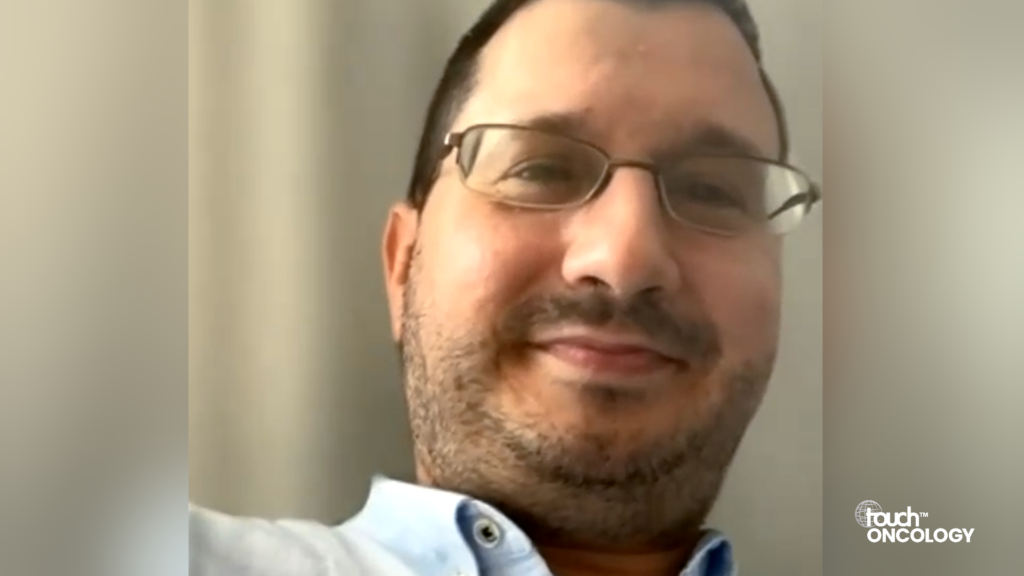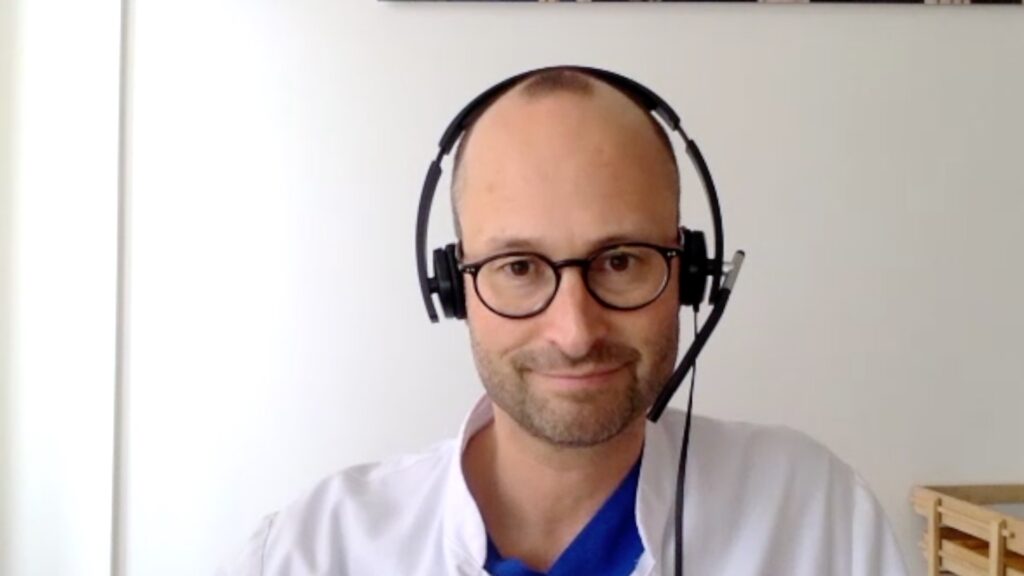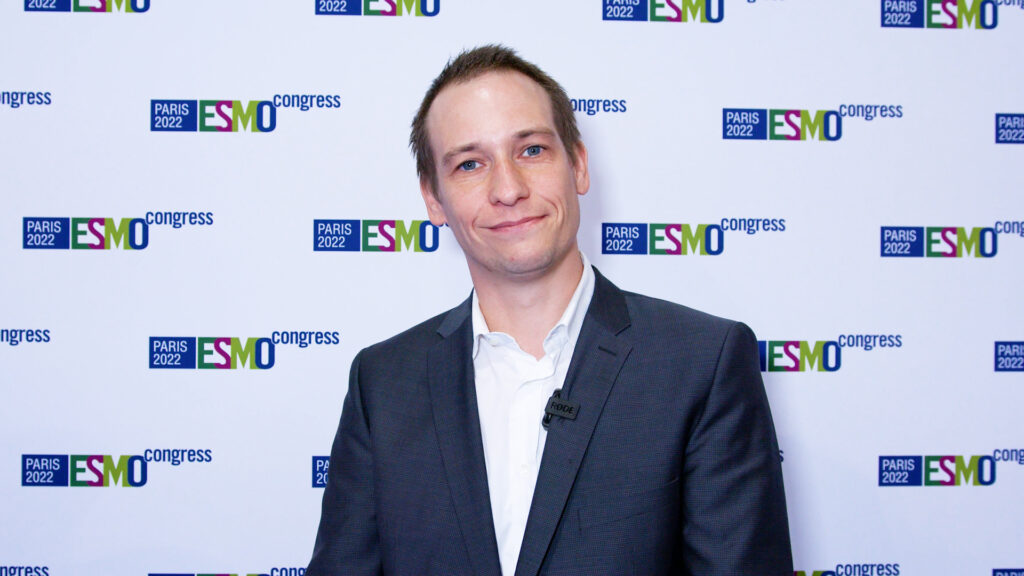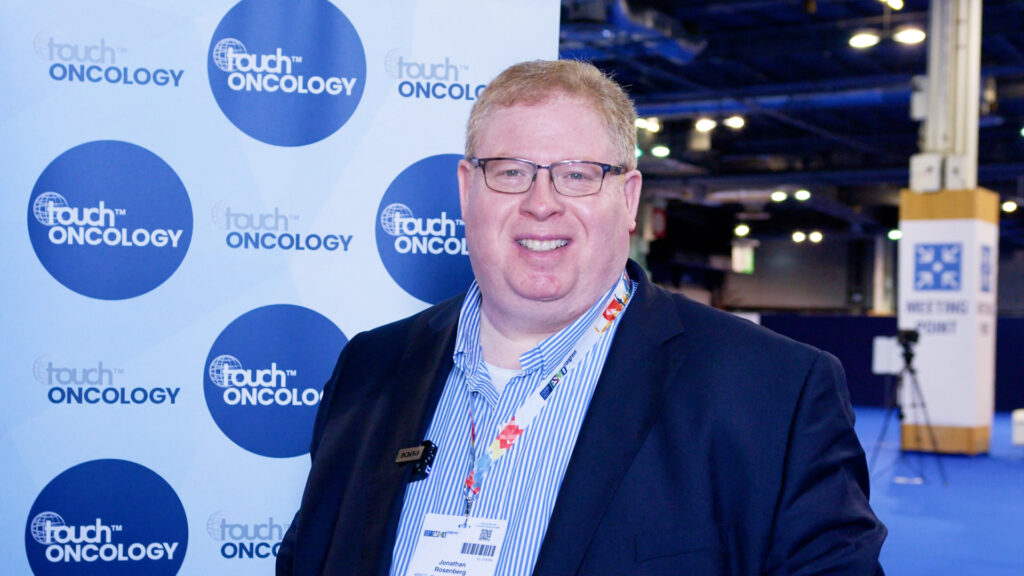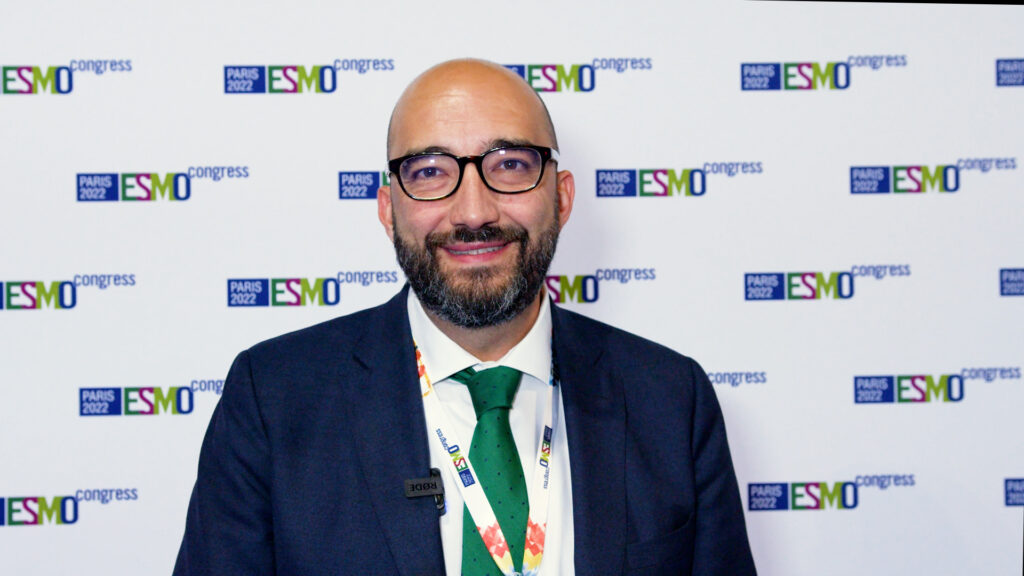touchONCOLOGY coverage of data presented at ASCO 2024:
Significant advancements in bladder cancer research emerged from ASCO 2024. To understand these, as well as the other key trials and highlights from the meeting, we spoke with the Clinical Director of the Genitourinary Cancer Program at the University of Washington and Fred Hutchinson Cancer Center, Prof. Petros Grivas.
In this interview, Prof. Grivas delves into the findings from the EV-302 (NCT04223856), EV-101 (NCT02091999), EV-201 (NCT03219333), EV-301 (NCT03474107), CheckMate 901 (NCT03036098) and other trials, offering his valuable insights into the impact the results could have on clinical practice, and particularly in the treatment of bladder
Associated abstracts:
Gupta S, et al. Patient-reported outcomes (PROs) from a randomized, phase 3 trial of enfortumab vedotin plus pembrolizumab (EV+P) versus platinum-based chemotherapy (PBC) in previously untreated locally advanced or metastatic urothelial cancer (la/mUC). ASCO Congress 2024, Abstract 4502
Petrylak DP, et al. Impact of exposure on outcomes with enfortumab vedotin in patients with locally advanced or metastatic urothelial cancer. ASCO Congress 2024, Abstract 4503
Galsky MD, et al. Characterization of complete responders to nivolumab + gemcitabine-cisplatin vs gemcitabine-cisplatin alone and patients with lymph node–only metastatic urothelial carcinoma from the CheckMate 901 trial. ASCO Congress 2024, Abstract 4509
Disclosures: Petros Grivas discloses a consultancy/advisory role for 4D Pharma PLC, Aadi Bioscience, AstraZeneca, Asieris Pharmaceuticals, Astellas Pharma, BMS, Boston Gene, CG Oncology, Dyania Health, Lucence Health, Fresenius Kabi, G1 Therapeutics, Gilead, Guardant Health, ImmunityBio, Infinity Pharmaceuticals, Janssen, Merck, MSD, Pfizer, PureTech, Roche, Seattle Genetics, Strata Oncology, Silverback Therapeutics, and UroGen; and institutional research funding from ALX Oncology, Acrivon Therapeutics, Bavarian Nordic, Bristol Myers Squibb, Debiopharm Group, G1 Therapeutics, Gilead Sciences, GSK, Merck, Mirati Therapeutics, MSD, Pfizer and QED Therapeutics.
This content has been developed independently by Touch Medical Media for touchONCOLOGY and is not affiliated with ASCO. Unapproved products or unapproved uses of approved products may be discussed by the faculty; these situations may reflect the approval status in one or more jurisdictions. No endorsement of unapproved products or unapproved uses is either made or implied by mention of these products or uses by Touch Medical Media or any sponsor. Views expressed are the speaker’s own and do not necessarily reflect the views of Touch Medical Media.
Click here for more content on bladder cancer & for further ASCO 2024 highlights visit here.
Transcript
Hello. I’m Dr Petros Grivas. I’m a professor of oncology at University of Washington and Fred Hodgson Cancer Center in Seattle, taking care of patients, doing research, and educating the next generation.
I’m very excited, that I came back from ASCO 2024 with a lot of data to think about, very interesting datasets, important considerations, discussions, Q&A, educational sessions, networking.
I’m very energized about what is happening in the field. And I will give you some examples, not a comprehensive list, but a few examples of what is happening in the field of bladder cancer. We show a lot of interesting datasets. I will focus mostly on metastatic disease, and especially in the frontline setting of metastatic urothelial carcinoma.
For context, we have seen data at ESMO 2023 in October in Madrid, regarding EV-302 trial and CheckMate 901 trial, both phase III trials, practice changing, and we saw some updated datasets at ASCO 2024. I will start with EV-302 very briefly.
For context. This was a phase III trial, randomizing patients to pembrolizumab anti-PD1 plus and for mofedotin antibody drug conjugate against Nectin-4, cutting the MMAE payload, and that combination was compared to platinum-based chemotherapy, GEMCIS or, GEMCARBO, and a maintenance was allowed, even if it was not part of the design, it was allowed to be given, and, approximately 30% of patients, about a third of patients in the chemotherapy control arm received avelumab. And approximately 60% of patients, two thirds or so, received checkpoint inhibitor at some point before or after progression in the chemotherapy control arm.
That trial has shown, dramatic improvement in progression free and overall survival with pembro EV versus platinum based chemotherapy, and that improvement, led to the FDA approval in December of 2023 of pembro EV as frontline setting regardless of cisplatin eligibility, cisplatin eligible or ineligible patients, and I think, has become, probably the preferred, therapy, regimen in the vast majority of patients in the frontline setting. We saw some interesting data for quality of life, patient report outcomes, by Dr Shilpa Gupta from the EV-302 trial. And, the take home message was that this significant survival benefit with pembrolizumab comes without detriment in quality of life.
If anything, there were some improvements in some patients in pain and functioning because of the better disease control, higher response rate, and maybe some durable responses with pembro EV. So it corroborates, that, the regimen not only, has improvement in survival that was notable, but this comes, without detriment and quality of life. And that’s important because toxicity profile of this combination is very important to review and be well educated upon.
We know that toxicity with enfortumab, and pembrolizumab, requires very close attention, education of the providers team, the physician, the APP, the nurse, the pharmacist, the infusion nurse, and, of course, the patient to make sure they do not under report, to make sure that the patient reports timely and accurately any potential side effects. And in that context, we also saw some very interesting data from Dr Petrylak looking at different trials with enfortumab vedotin (EV) and enfortumab mofetitin monotherapy.
We know that EV-201 and EV-301, are phase II and phase III trials, respectively, look at the enfortumab mofetitin in previously treated patients, with enfortumab mofetitin as a single agent after prior treatment. And, that trial, EV301 phase three led to the approval of enfortumab, in previously treated mesothelial urothelial carcinoma.
And that, dataset from Dr Petrylak showed that the initial dose 1.25 mg per kg, this dose seems to be a reasonable one and it’s associated with higher response rate compared to a lower starting dose. However, it’s very important that we do those adjustments, those modifications down the road, based on toxicity, to manage potential neuropathy, skin rash, fatigue, anorexia, nausea, hypoglyceamia, and others, and tooth and fortumab. And those adjustments are fine, and we go to reassurance from Dr Petrylak’s data that those those adjustments do not seem to compromise response, rates, and outcome with the EV monotherapy.
So it justifies our practice of, very, very, carefully adjusting and modifying those of enfortumab, in monotherapy setting, but I think this can be extrapolated in the EV pembrolizumab data probably.
The other data set we saw was from the CheckMate-901. That trial showed an overall survival and program survival benefit with nivolumab + gemcitabine-cisplatin versus gemcitabine-cisplatin.
This trial was presented at ESMO 2023. It was published, at the New England Journal of Medicine, and it was recently, actually led to the FDA and I think also the European Medicine Agency approval for nivolumab + gemcitabine-cisplatin as first-line treatment, in cisplatin eligible patients. And, obviously, this is, any volume up concurrently with gem series, but also continuation level up to two years after, overall duration, as long as the patient has no progression or, unacceptable toxicity in the interim. And, the data we saw was aim or, was interesting, I think because, Dr Galsky and colleagues tried to characterize the patients with complete response.
Overall, in the CheckMate-901 trial, the overall response rate was about 57% with nivolumab + gemcitabine-cisplatin, 44% with gemcitabine-cisplatin and, there was a 22% of patients with complete response with a median duration of complete response 37 months, about 3 years. And they looked and see who are those patients with complete response? And this population of complete responders seems to be enriched in patients with lymph node only disease. And if you look at all comers in that trial, 18% of patients, enrolled in the CheckMate-901 had lymph node only disease, and the response rate with nivolumab + gemcitabine-cisplatin, overall response rate was about 80% and 63% complete response rate, with nivolumab + gemcitabine-cisplatin and this lymph node only disease, which is interesting and raised the question whether this can be a regimen of choice in this population.
Of course, we have seen also very favourable data with pembro EV in lymph node only subset being superior to platinum-based chemotherapy. And we saw some similar data, with lymph node only disease patients doing better compared to visual metastases patients in the JAVELIN Bladder 100. So I think that they come as is what we knew already that patients with not only disease, they do better across therapy regimens. It’s a post-prognostic favourable prognostic factor.
And of course, it requires individual discussion decision making with the patient about which regimen to give. But I think the data with pembro EV and gemcitabine-cisplatin nivolumab both look very favorable in those spaces with lymph node only disease.
And, and of course, we have to, look at longer follow-up, with the EV-302 trial, to see the durability of response at the tail of the curve in some of those patients. Other data from CheckMate-901, from Dr Galsky are interesting, and, I think, down the road, we need some more work on molecular biomarkers, in, at the patient population. So overall, there, there is enthusiasm about the progress made in the field. There is so much going on.
Of course, we’re awaiting to see the ground lab data from the TROPiCS-04 phase III trial comparing substitution sacituzumab govitecan to taxane or vinflunine. That dataset, will be presented in the future. And overall, with all the drug conjugates, erdafitinib, checkpoint inhibitors, chemotherapy, and all the novel agents coming up, I think the future is even brighter, I think. We’re doing more work looking at combinations, looking at biomarkers, aiming to prolong the life of patients and, hopefully being able to potentially, induce prolonged remission, in an increasing proportion of patients down the road.
And at the same time, we’re aiming to improve their quality of life. So a lot is going on in the field of bladder cancer, also in localized disease, non-muscle invasive, muscle invasive, neoadjuvant blood preservation, all of the above, and I’m looking forward for more datasets in the future.
I encourage all of you to review the meeting and looking forward to seeing you in future meetings. Thank you.
Interviewer/Editor: Carla Junkier
Cite: Grivas P. Insights in bladder cancer: EV-302, EV-101, CheckMate 901. touchONCOLOGY, July 25 2024.


